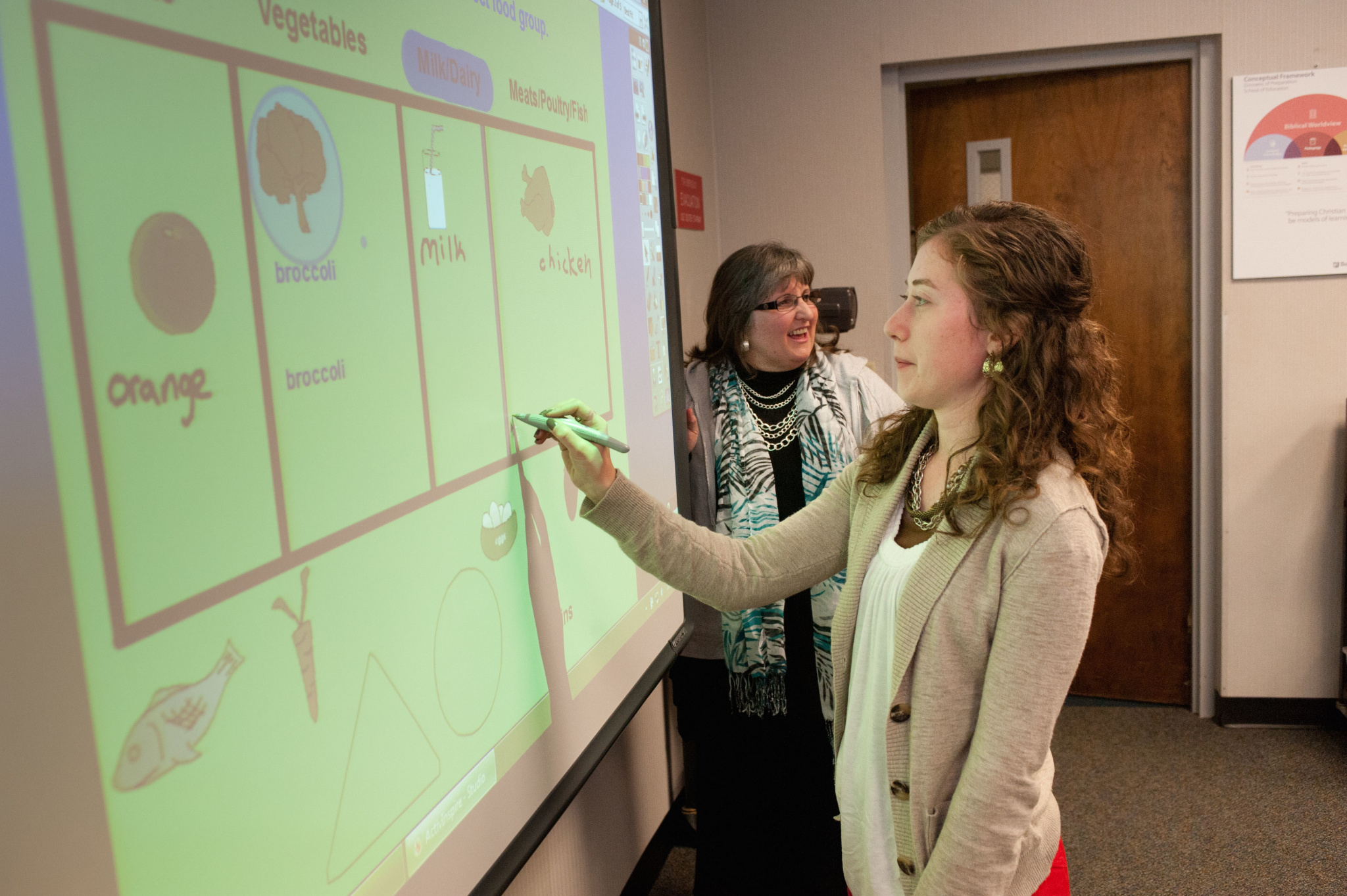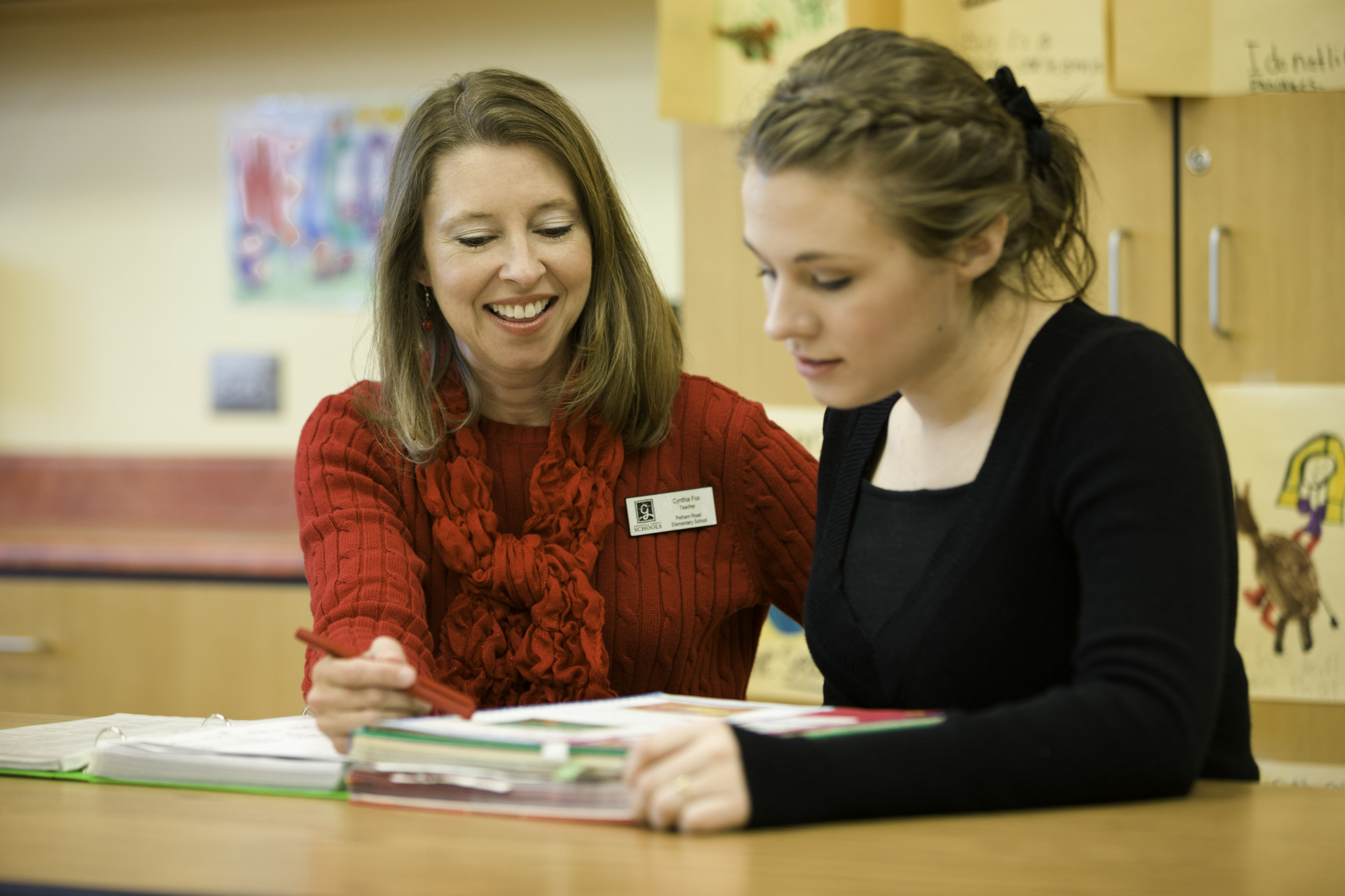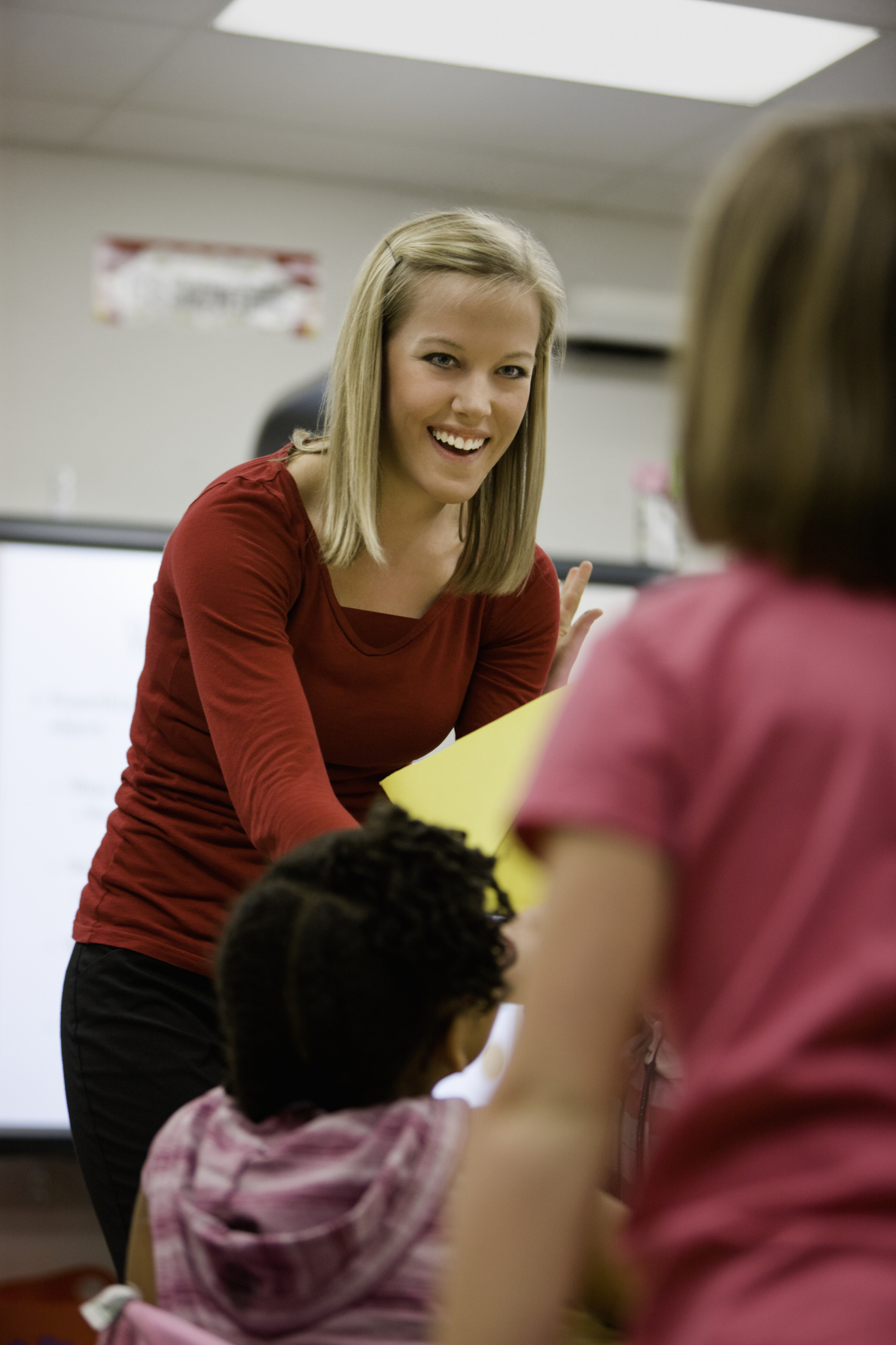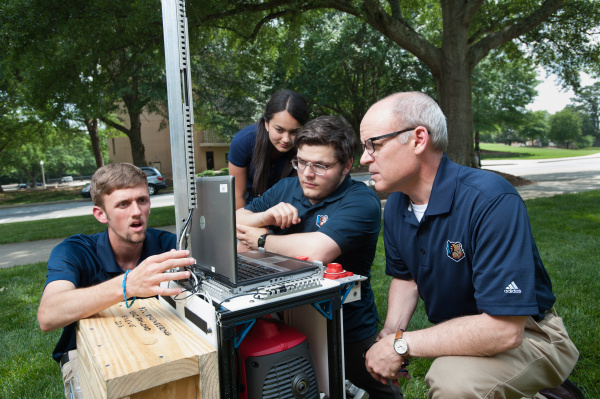As the school bell rings, children rush into their classroom. Their teacher has a smile and a welcome for each student. What they don’t know is she stayed up late cutting shapes for their art lesson after she graded their book reports and prepared the next week’s lessons. But she doesn’t mind. She loves her kids, and she would give up much to see them succeed.
BJU’s elementary education program, according to program coordinator Dr. Tammie Jacobs, “is designed for students who love children and want to influence them using the tools of education and the message of the Gospel.” Through innovative technology and real-life application, the program teaches students how to be Christ-centered educators.
What Classes Will I Take?
Every class in the elementary education program prepares you for the day you are in your own classroom teaching a room full of students. Most of the courses during your first two years teach the foundations and principles needed to become a teacher.
The first course is Introduction to Education, which was designed to increase students’ interest by showcasing different teaching situations, styles and philosophies. During the class, students visit working classrooms and assist teachers. “Field experiences give (students) the opportunity to apply what they learn,” Jacobs said.
The program includes five elementary methods courses. “The (methods courses) teach students strategies for how they will teach children of different ages and abilities the skills and content they need to learn at a particular grade level,” Jacobs said.
In Foundations in Educational Technology, students become familiar with technology teachers use in the classroom such as iPads and Promethean boards. Some classrooms in the Alumni Building feature Promethean boards, and education students may practice on the boards when class is not in session.
What Experiential Learning Opportunities Will I Have?
The elementary education program has two required field experiences.
Practicum
During your junior year, elementary education students take a course called Practicum: Grades 2–6. The class meets once a week. Along with the class, you spend your Tuesdays and Thursdays in a public school classroom assisting a teacher, tutoring individuals and teaching lessons.
Student Teaching
Student teaching is the capstone field experience. Seniors spend a semester in an elementary school classroom working with a mentor teacher. You become responsible for planning instruction, teaching and overseeing the class for most of the semester.
Will I Take Any National Tests?
Elementary education students must take two Praxis II exams to receive their South Carolina teaching certificate. BJU’s elementary education program has achieved a 99% pass rate on the exams over the past two years. Most students take the Praxis before their senior year.
How Can I Prepare to be a Teacher Now?
You have a desire to ignite a love of learning into the hearts of children. The thought of creating lesson plans and leading field trips excites you. You know you are meant to be a teacher, but is there anything you can do to prepare?
Volunteer At Your Local Church
Most churches have a children’s ministry. Through songs and games, kids learn the importance of following Jesus. For those interested in teaching, volunteering in a children’s ministry will give them teaching experience while helping to advance God’s kingdom.
“Incoming students who have experience teaching Sunday school or junior church have more confidence. They have learned how to tell a story, give instructions and keep the attention of the children they are teaching,” Jacobs said. Each church has its own rules, but most churches allow students to volunteer during their high school and college years.
Shadow a Teacher
Many high schools require students to shadow a professional working in a career they would like to pursue. If your school requires this, shadowing an elementary school teacher would be perfect for you. But even if it’s not a requirement, it is an experience worth the time.
“Students who shadow elementary school teachers can see what the job entails. They learn how the teacher responds to situations in the classroom. They see the procedures that the teacher has set up to manage the class,” Jacobs said.
Work at a Teaching-Related Job
Once you graduate from high school and start college, you can gain teaching experience alongside the work you do in your classes. Some campus jobs are beneficial to education students.
Many students in this program choose to work at Bob Jones Academy in the late stay program or as a teacher’s aide. Late stay allows students to work directly with kids while leading group activities, giving devotionals and managing groups of children.
Teacher’s aides work directly with teachers to assist with classroom projects and activities. One day you might be grading papers and the next you are making copies of a unit test. The job is versatile and helps students practice time management.
Some seniors in the program also work as substitute teachers in the Greenville County Schools system one or two days per week.
What Else Will I Learn?
From observing classrooms to preparing lesson plans, the elementary education program equips you with all the tools you need to be a teacher. “The focus of the elementary education program is on learning how to write a lesson plan and learning a variety of strategies for teaching all the subjects to a diverse group of children,” Jacobs said.
Whether a child is a natural student or they struggle academically, they all have potential. By taking the time to know each student and understand their needs, you can make an impact in your students’ lives. Said Jacobs: “Christian teachers want to impact their students’ lives. They want to make a difference by showing the love of Christ to these children and providing them with lifelong skills.”
For more information about the elementary education program or to apply online, visit BJU’s elementary education program page.











